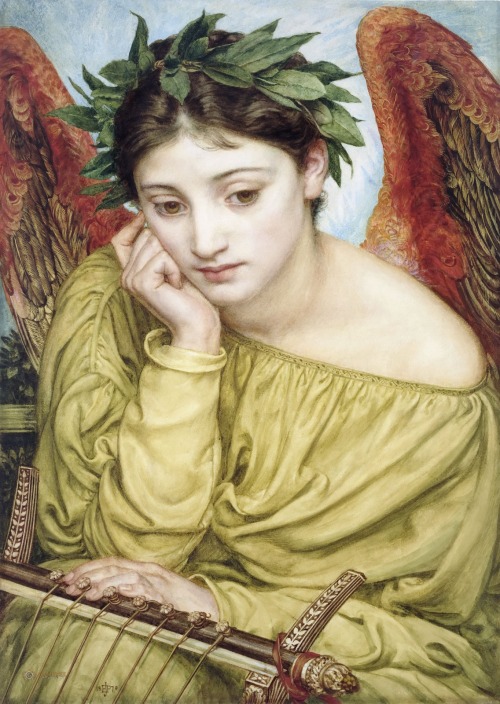

They have appeared, each with her own particular symbol, in paintings, architecture, and sculpture throughout the centuries. Poetry Muse is a crossword puzzle clue that we have spotted over 20 times. Meet the 9 muses of Greek Mythology, their representations in art. The Muses appeared in paintings and sculptures throughout Greece and beyond, and were often the subject of the red and black pottery which was popular during the 5th and 4th century BCE.

The result: his daughters were turned into magpies. For example, according to one myth, King Pierus of Macedon named his nine daughters after the Muses, believing they were more beautiful and talented. Myths regarding challenges to the Muses inevitably end in the challenger losing the challenge and suffering a terrible punishment. The solution we have for Muse of poetry has a total of 5 letters. This crossword clue was last seen on ApLA Times Crossword puzzle.

While they were beautiful to behold and wonderfully gifted, their talents were not to be challenged. Elizabeth Marie Young disagrees, and with Translation as Muse, she uses the work of the celebrated Roman poet Catullus to mount a powerful argument that. Here is the answer for the: Muse of poetry LA Times Crossword. In most accounts she and King Oeagrus of Thrace were the parents of Orpheus, the lyre-playing hero. At the behest of Zeus, the king of the gods, she judged the dispute between the goddesses Aphrodite and Persephone over Adonis. In legend, the Muses were variously described as living on Mt. Calliope, also spelled Kalliope, in Greek mythology, according to Hesiod’s Theogony, foremost of the nine Muses she was later called the patron of epic poetry. The Muses delight the gods and human beings with their songs, dances, and poems and inspire human artists to greater artistic achievements. Each of the Muses is lovely, graceful and alluring, and gifted with a particular artistic talent. They were born after the pair lay together for nine nights in a row. A muse (n) also refers to any source of inspiration to creators (artists, writers, poets, et al) The. That way, your muse knows to expect your call.The Muses were the daughters of Zeus, king of gods, and Mnemosyne, goddess of memory. To muse is to become absorbed in thought, to say something in a thoughtful (lost in thoughts) way but as a noun, a Muse refers to any of the nine sister goddesses in Greek mythology who preside over song and poetry and the arts and sciences. In ancient times, she was represented with a laurel wreath, but since the Renaissance, she has been depicted in art with a crown adorned with myrtle and roses. Try to make it the same time of day each day. According to Greek mythology, Erato is the inspirational muse of poetry, especially romantic poetry.

Those pesky bills still have to be paid, don’t they? So even if you can’t create at your prime time, pick a time for creating and make it a sacred time. She published her first artist book of prints and poems, Sur la Pierre (On the Stone), in 1972 with Parisian print. We’ve already talked about finding the time of day when you are most creative, but I know life has a way of interfering. In addition to painting, Gilot continued to pursue printmaking and poetry. Step One is to choose a certain time each day to create. How do you do this?īy establishing creative routines, you can call the muse to you. Your job is to summon the muse, to make her come to you on demand. Regardless of which muse you are looking for, if you wait for the muse to show up on her own, you will never create anything. Polyhymnia was the muse of sacred poetry. The only answer is Clare, which has 19 letters. What is a muse? In mythology, the muses were nine goddesses who symbolized the arts and sciences. In Greek mythology, Calliope ( / kla.pi / k-LY-pee Ancient Greek:, romanized : Kallióp, lit. Currently, there is one crossword puzzle answer for the crossword puzzle term THE RURAL MUSE POET.


 0 kommentar(er)
0 kommentar(er)
